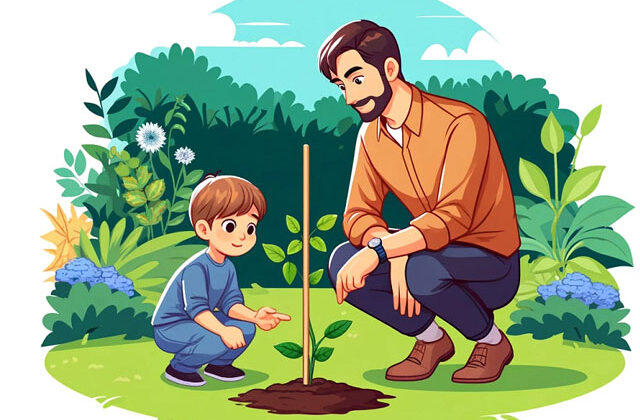Mary Pouline,

Author and Founder, Sapience Publications
Specially Tailored for all the
readers who opt to read
the content – Series 3
Hi friends, I am Mary Pouline.
Here I am with series 3 of the “WWW – Win-Win-Way.” This WWW will not only bring you information but also excite you, energise you,enlighten you, and,of course, elevate your mood.The win-win-way is certainly going to be a blessing for you. Reading needs patience; patience gives you perseverance and takes you closer to your dream. So, get set, ready, go!
- WWW – Sparkling Stations of Life
It is said that if you are intelligent, you will do what you want, but if you are a genius, you will do what you need to do. This, I would say, is the philosophy behind the win-win way. The aim of this Win-Win series of talks is to help people win the game called life without making others feel like losers. You know, every coin has two sides. But we human beings have, not two, but three sides to our life. If you could look at all three sides and understand their interconnectedness, you are on your way to success. What are these three sides? If you think of your life as a journey, then, the three sides would be three stations along the route.
Let’s explore the three stations of life.
Station 1 represents your past experiences, Station 2 is your present existence, and Station 3 is your future enjoyment. Each station represents a crucial aspect of your life’s journey, and understanding it is key to personal growth and success.
Now, the journey begins.
Station 1: This is your past. Reflect on all your experiences, even the ones that may seem negative, with a sense of gratitude. Remind yourself, “Yes, it was me,” and “Maybe, I was a bit immature then, and so I did that silly thing. But I also had good health, nourishing food, loving parents, caring siblings, a supportive life partner, wonderful children, affectionate relatives, empathetic friends, a good education, and a decent upbringing…”. The list is unique to each person. Look back and express your gratitude.
Station 2: Your Present Existence. Acknowledge your current state with contentment. Tell yourself, “I am alive and perfectly fine with that. Of course, there are things I desire, but I also recognize the beauty of life. I can either work towards them or patiently wait. Focus on the present moment, and be grateful for where you are today. It’s as simple as that.
Station 3: Your Future. Let me illustrate it with a fairy tale. Hansel and Gretel are the young children of a poor woodcutter from his first wife. When a great famine settles over the land, the woodcutter’s wife, now a stepmother for the children, decides to take the children into the woods and abandon them there. The woodcutter opposes the plan but finally gives in to his wife’s idea. They were unaware that the children were overhearing them from their bedroom. After the parents have gone to bed, Hansel sneaks out of the house, gathers as many white pebbles as he can, and returns to his room, reassuring Gretel that God will not forsake them. The next day, the family walks deep into the woods. As they walk along, Hansel lays a trail of white pebbles without the stepmother noticing it. After their parents abandon them, the children wait for the moon to rise, and then they follow the trail of pebbles and get back home. They return home safely. Hansel gathering pebbles indicates good planning in view of an uncertain future.
Nobody wants a future full of sorrow. Everyone wishes to have the best. That’s absolutely all right, too. But to attain that, planning is mandatory. Station 3, the future, you know, begins now, not tomorrow. So plan and start gathering your pebbles as you go along. Plan for the next three months, for the next six months, then for one year, and for five years. Does it look impossible? Not at all. Albert Einstein would say, ‘Doing the same thing and expecting a different result is insanity.’ Become an interior designer, an interior of your own life; interior, note the point, not exterior only. Then you will be a winner in any situation. Look ahead and Trust God. I wish you the very best.
- WWW –Planning and Winning
I was raised to believe that time is free, but it’s priceless. You can’t own it; you can only use it. You can’t keep it; you can only spend it. Once you’ve lost it, you can never, never get it back. Therefore, I am here to discuss the importance of time. In my previous discussion, I talked about the three stages of life and the significance of planning. When I mentioned planning for different time frames such as a day, a week, a month, three months, six months, one year, and three years, people became puzzled and started asking, “How?”. So, I’m here to help you understand the concept of planning. But before I delve into planning, let’s start with a warm-up exercise. Imagine you’re at a concert. Before the performers begin, they do warm-up exercises by humming to prepare their voices. Similarly, we should do some warm-up exercises before we start planning.
Here is a great “warm-up”
exercise and a caution:
The SWOC Analysis of yourself. So, what is SWOC? S stands for your Strengths, W for your Weaknesses, O for the Opportunities, C for the Challenges. It is also known as SWOT Analysis, where the T stands for Threats. But I prefer to call them Challenges, rather than Threats. Anyway, it means the same. Spend only 10 minutes every day identifying your SWOC, and you will see what a difference it makes in your life.
Please keep in mind the following text
And now, a caution: Remember, there are only 24 hours in a day. The time we have for doing any job is limited. So is our energy level. It progressively diminishes. For example, we may feel great in the morning, but by 11 a.m., our energy level drops, and we need a cup of tea to boost it up. By 5 p.m., we are exhausted, and by late evening, we are ready to go to bed, bone-tired. This means we should learn to organize and prioritize our tasks according to their urgency and importance. In other words, we should focus on the most important tasks first.
Sure, here is a clearer version of the text:
Imagine a pickle jar as the space inside your day. First, identify a few very important tasks as the big tasks, represented by river stones. Then, there are other important tasks, represented by pebbles. Finally, there are less important or unimportant tasks, represented by a heap of sand. With limited time, prioritize the big tasks first, then the important tasks, and finally, the less important tasks.
When filling a limited space, such as a pickle jar, with stones, pebbles, and sand, it’s important to start with the larger items first. If you start with the sand or the pebbles, there won’t be enough room for all three. So, begin by placing the stones in the jar, then add the pebbles, and finally pour in the sand.
To succeed in fulfilling all your tasks in life, it’s best to start with the most important tasks first, then move on to the less important ones, and finally the least important or unimportant things. Each person must identify their most important tasks. Planning is the secret to managing these diverse demands. It’s a win-win because you value your time and the time of others. I recommend practising planning by starting with a mental warm-up of SWOC analysis.
Dear readers, start practising now. If not now, when? If not you, then who?
Stay blessed. Thank you.






